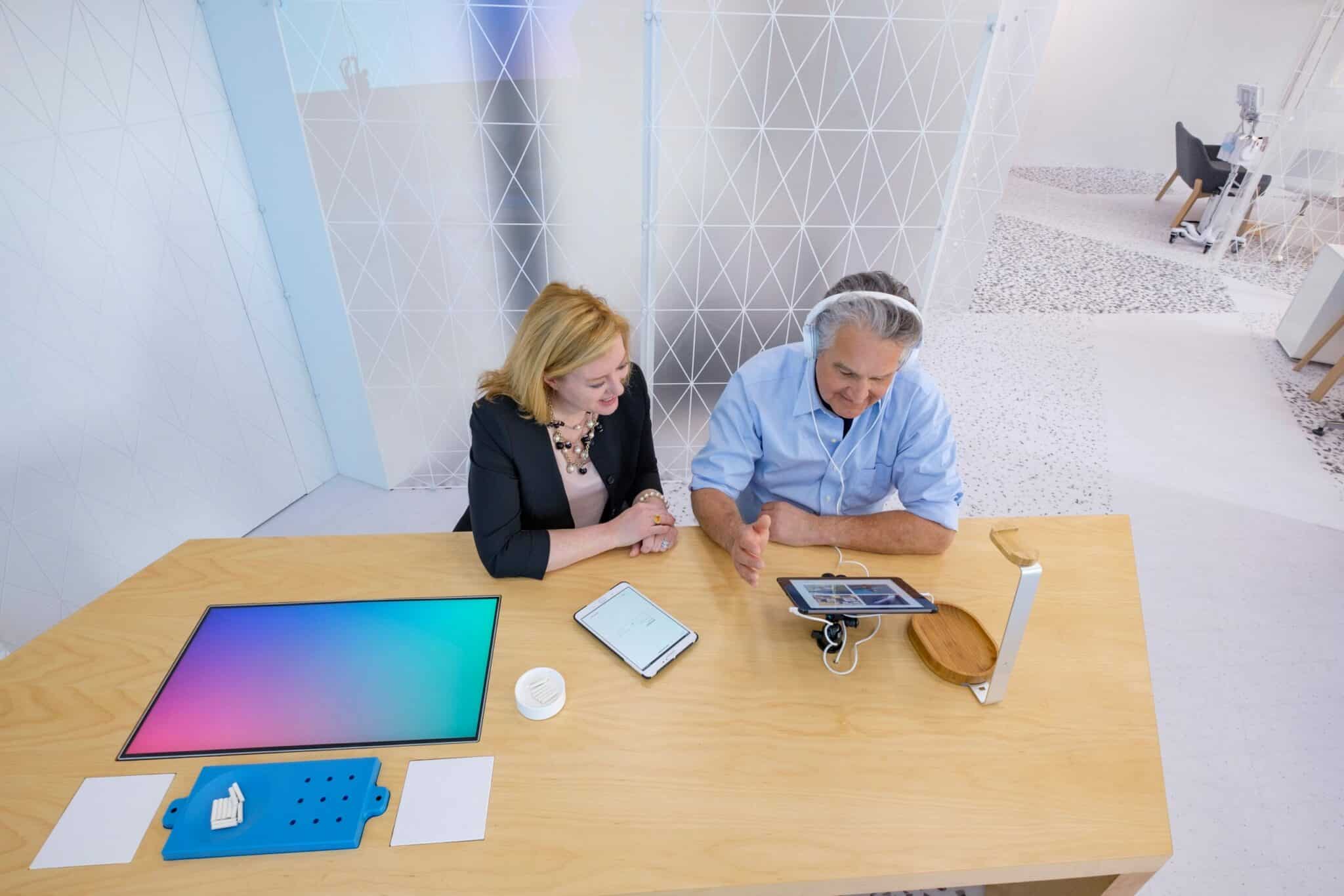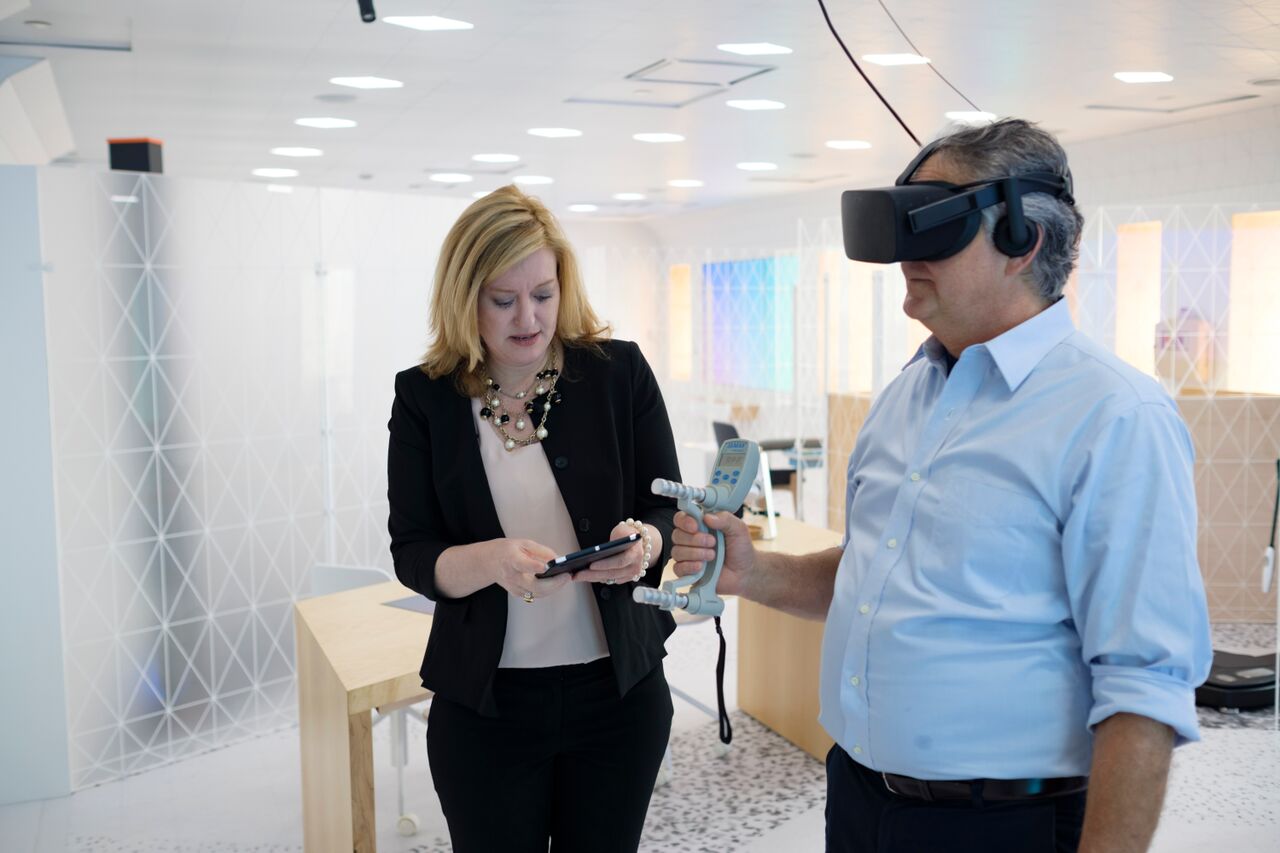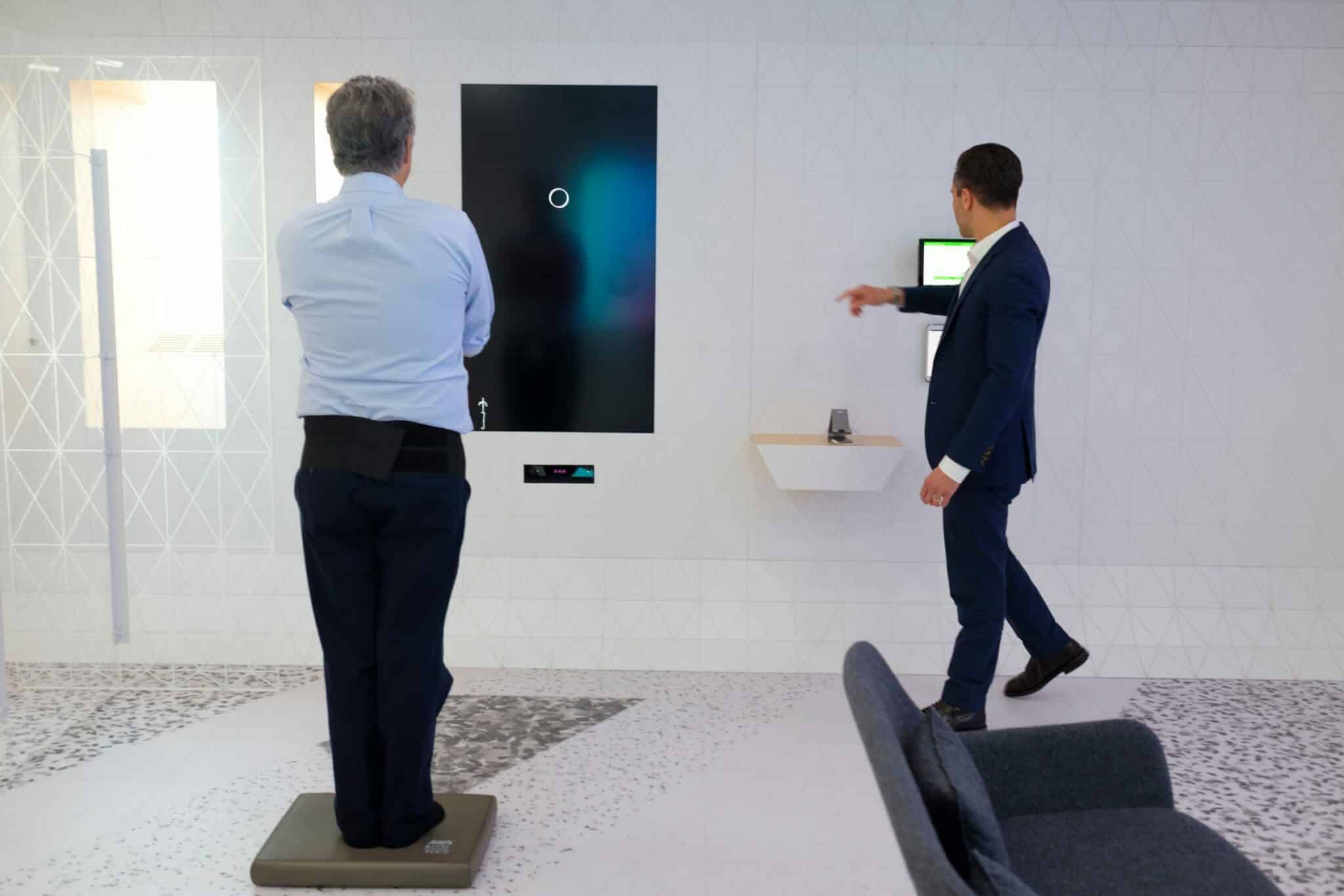We experienced the futuristic Lab100 in New York—a new concept that puts patients through a series of high-tech physical and mental tests for an hour and a half. The goal: to empower patients to track their own health and create a dataset on people that are not that sick yet. Our reporter tested the process.
Walking through a library bustling with medical students, being led into a futuristic room overlooking a sparkling New York skyline, the vibe I get contrasts starkly with the many medical appointments I have had over the years in drab, windowless rooms filled with restless patients and tetchy admin staff. I am here to experience Lab100, the brainchild of the Icahn School of Medicine at Mount Sinai, an integrated healthcare system located on Manhattan’s Upper East Side.
This clinical platform, which opened its doors fully last October after several months of beta testing, puts patients through a series of high-tech physical and mental tests that take about 90 minutes. The results are provided and interpreted on the spot and, if the patient consents, added in de-identified form to Mount Sinai’s medical research database.

After completing a carefully-crafted questionnaire that plotted my medical history, sleep and eating habits, I went through the eight testing stations equipped with the latest medical technologies. At each station a detailed readout of my results was displayed on a large black screen, with results grouped under eight categories: blood, body geometry, body composition, body symmetry, cognition, dexterity, strength, and balance.
At each step of the process, Lab100’s Clinical Program Manager, Marina Gazyeva, was on hand to explain how the test would work as well as its purpose, and immediately after it was done, she was there to discuss the results and answer any questions I might have.
Artificial Intelligence
The test part over, I switched from patient to journalist mode and sat down with Sarah Pesce, Clinical Director of Operations, to discuss the Lab100’s genesis, purpose, and evolution. Pesce said:
“Many of the datasets that we have at Mount Sinai are on what we would consider diseased patients, people who have been committed to hospital multiple times. We wanted to create a dataset on people that are not that sick yet.”
The thinking is that patients will want to come in if they know they are going to receive a clinical service that provides them with useful information. Once they come, they can opt in if they wish to provide their de-identified data for research on the back end. Artificial Intelligence (AI) is woven into the experience but plays more of a supporting than a lead role. Pesce said:
“Lab100 does what technology should do, it fades into the background, synthesizes the information so that we can go back to talking to the patients.”

AI is particularly useful at providing very precise results. Pesce said:
“Patients want that precision, they want specific exercise recommendations. Currently, you would typically tell a patient they should exercise but they don’t know the exact definition of how they should do that—do they sweat when they exercise, do they elevate their heart rate? AI allows us to code things and create a care plan with greater precision and hopefully with greater results.”



The approach is quite different from anything I’d ever experienced. Pesce said:
“We didn’t realize ourselves how unique we were until we opened the center. Patients love the experience and so do providers.”
Lifelike Avatar
It does feel great to immerse yourself in all of the high-tech diagnostic technologies. A particularly ‘cool’ moment was looking at a lifelike avatar of myself generated by a 3D body scanner, which appeared on a screen next to my body composition scores.
The long-term value of this experience is learning what these metrics mean, why they matter, and how everyday choices we make help determine these scores. “We want to see with this platform if we can move the needle of patient behavior, which is the hardest thing to change,” said Pesce. “The ultimate of goal of Lab100 is to become more predictive and less reactive in healthcare.”












